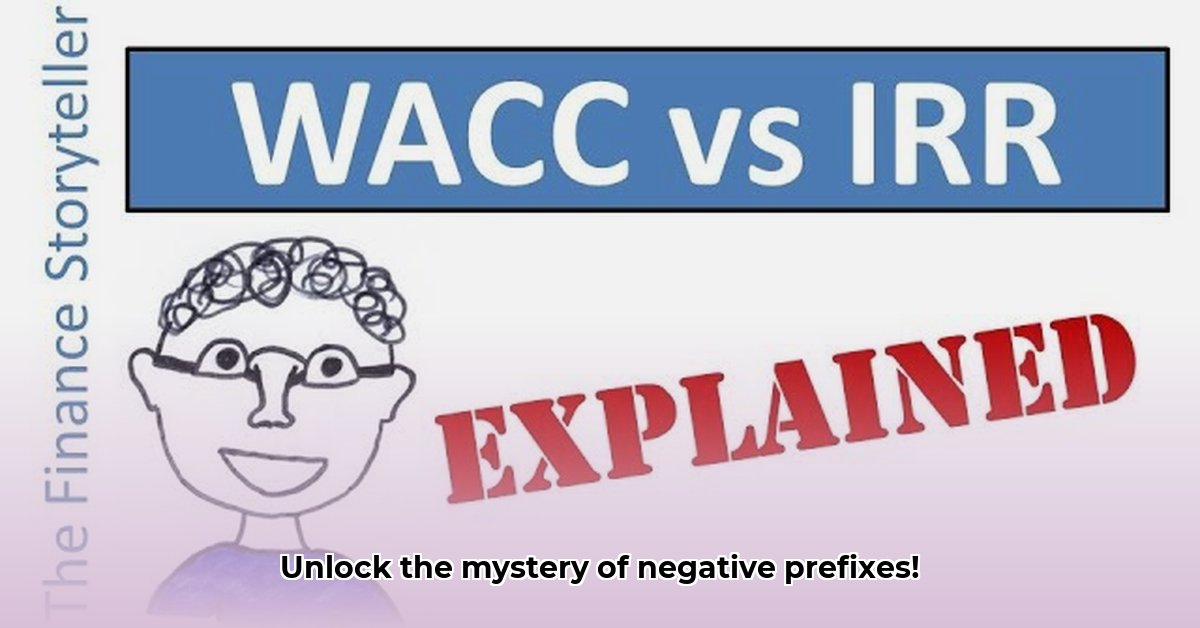
Words Beginning with "irr-": A Study in Negation
The English language boasts a rich tapestry of prefixes, each adding a unique layer of meaning to base words. Among these, the prefix "irr-" stands out for its consistent, yet nuanced, contribution of negativity. This analysis explores the origins, semantic implications, and practical applications of this fascinating linguistic element.
Understanding the "irr-" Prefix: Nuances of Negation
The "irr-" prefix primarily functions as a negative marker, inverting or negating the meaning of the root word. For instance, "rational" implies logical reasoning, while "irrational" denotes a lack thereof. However, the intensity of this negation isn't uniform. "Irresolute" suggests a mild indecision, whereas "irrevocable" signifies absolute finality. This variability underscores the complexity inherent in prefixal semantics.
Furthermore, the "irr-" prefix often appears in conjunction with root words already containing the letter 'r', highlighting a historical phonological influence. This pattern, often, though not always, observed, reflects the intricate processes of language evolution and assimilation.
Historical Roots and Linguistic Evolution
The "irr-" prefix traces its origins back to Latin, evolving over time to become a firmly established part of the English lexicon. Its persistence testifies to its semantic utility and versatility within English morphology. While its primary function remains negation, its precise impact is significantly shaped by the specific root word to which it attaches.
Exceptions and Complexities: A Deeper Examination
While the negative connotation of "irr-" is predominant, exceptions exist. "Irrigate," for example, does not denote the opposite of a positive action; instead, it describes the beneficial process of watering crops. Such exceptions highlight the inherent complexities of linguistic analysis and the unpredictable nature of language evolution. Further investigation is warranted to fully understand how context interacts with the semantic effect of this prefix.
Beyond "irr-": Comparative Morphology
Analyzing "irr-" necessitates a broader consideration of related negative prefixes in English. Prefixes like "in-" (as in "incapable," "incorrect") and "un-" (as in "unhappy", "unbelievable") share a similar function, albeit with their unique semantic nuances. Comparative studies of these prefixes offer valuable insights into the diverse mechanisms through which negativity is expressed within the English language.
Practical Applications and Disciplinary Relevance
The understanding of the "irr-" prefix extends beyond purely academic interest. It holds significant practical value in several fields:
- Writing and Editing: Precise word choice is paramount, and awareness of "irr-"'s semantic range ensures accurate and impactful communication.
- Education: Understanding the nuances of "irr-" enhances vocabulary instruction by fostering deeper comprehension of word meaning and their subtle variations.
- Computational Linguistics: Successfully interpreting the subtle semantic shifts affected by "irr-" is crucial for the development of sophisticated natural language processing (NLP) and machine translation systems.
Avenues for Future Research: Unanswered Questions
Despite the present analysis, considerable room remains for further exploration:
- Corpus-Based Analysis: Extensive corpus studies are needed to quantify the frequency and contextual usage of "irr-" in contemporary English.
- Semantic Mapping: A comprehensive analysis of the prefix's usage across various semantic fields could reveal patterns and connections that remain currently elusive.
- Diachronic Study: A more detailed historical tracing of "irr-"'s evolution through time is required to fully explicate its semantic drift and adaptation.
- Cross-Linguistic Comparison: Comparative studies with similar prefixes in other languages could highlight universal patterns in the linguistic expression of negation.
Conclusion: The Enduring Significance of "irr-"
The seemingly simple prefix "irr-" is far more complex than it initially appears. Its deep-rooted history, its consistent yet nuanced application, and its various exceptions make it a compelling subject for linguistic investigation. Further research is needed to fully unravel the mysteries of this intriguing linguistic element, fully appreciating the profound impact of prefixes upon our understanding of word meaning.